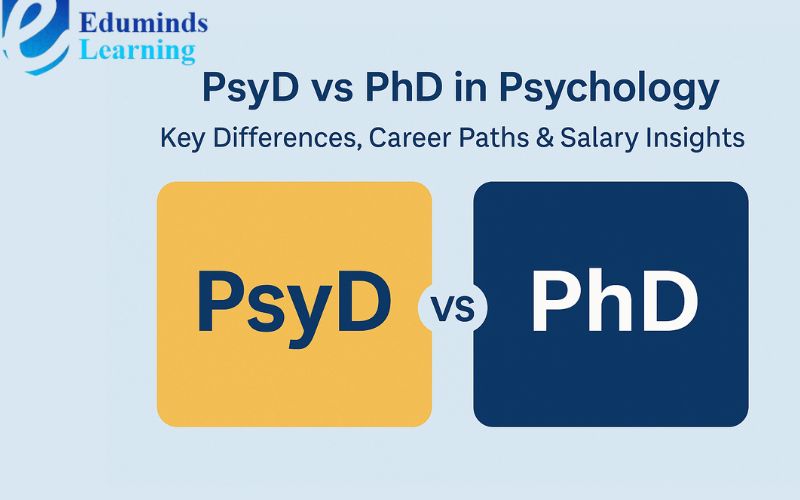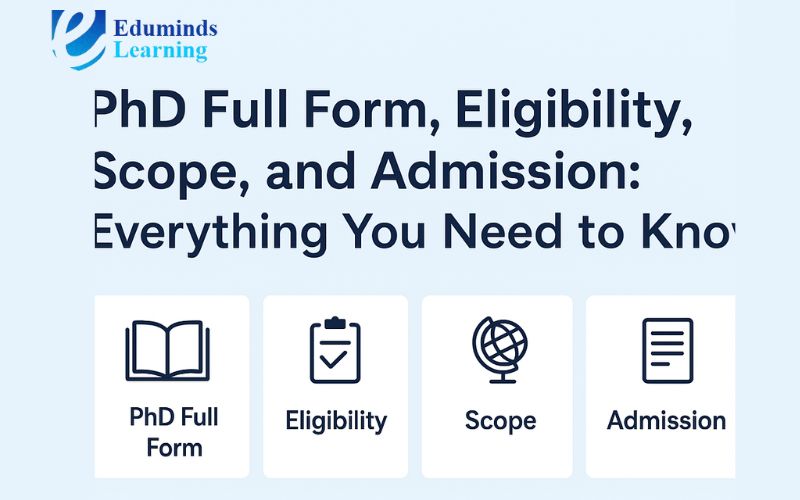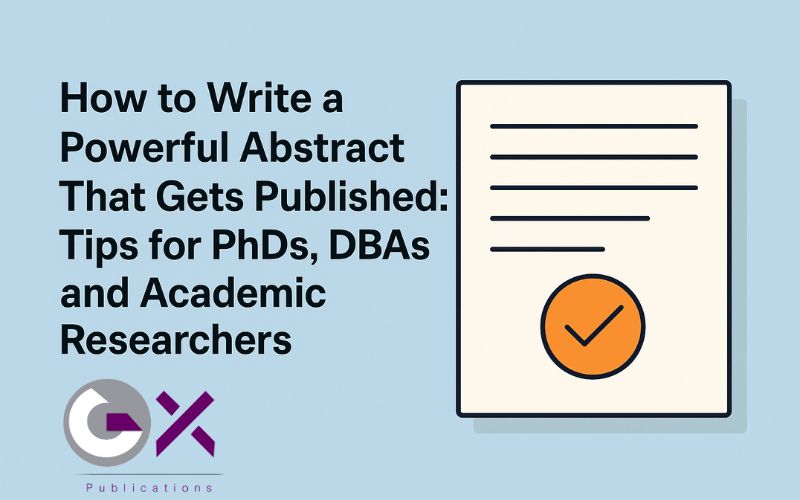PsyD vs PhD in Psychology: Key Differences, Career Paths & Salary Insights

Strong 8k brings an ultra-HD IPTV experience to your living room and your pocket.
It can be overwhelming to choose a PsyD or a PhD in psychology. They are graduate degrees, but they lead to different careers. One focuses on research, the other on practice work with individuals.
A PhD in Psychology is perfect for someone looking to teach or conduct research. A PsyD is perfect for someone looking to practice as a psychologist or therapist.
Many working professionals, early-career researchers, and business leaders are asking:
• “Which one helps me grow in my career?”
• “Does one pay more?”
• “How long does each take?”
Some are also exploring honorary PhDs, like those offered by Kennedy University, as recognition for real-world work.
At Eduminds Learning, we help you find programs that fit your goals—whether you want to study online, continue working, or build credibility in your field.
Here, we will clarify the basic distinctions between a PsyD and a PhD in psychology, compare career tracks, salaries, and guide you towards the right choice.
What is a PhD in Psychology?
A PhD in Psychology is a research degree. It entails probing the manner in which individuals think, feel, and behave.
This is the career for people who enjoy questioning and finding answers through decades of inquiry.
Here's the most important stuff:
• Main focus: Research and theory
• Common careers: University teacher, researcher, or consultant
• Program length: Usually 5 to 7 years
• Requirements: Research projects, published papers, and a final dissertation
• Ideal for: People who want to teach or lead studies in psychology
PhD in psychology typically offers funding, such as teaching assistantships or scholarships.
You will spend much of your time reading, writing, and studying patterns of behavior.
If you enjoy finding ideas and would like to have some impact on the way individuals learn or view psychology, this degree is a good choice.
It’s not just about helping people directly. It’s about building the knowledge that others use in practice.
What is a PsyD in Psychology?
A PsyD or Doctor of Psychology is a qualification aimed at those who want to be practicing psychologists, not researchers. It's more about helping real people rather than carrying out long-term research or creating research studies.
While a PhD is research-intensive, the PsyD teaches students how to work in clinics, hospitals, schools, or private practice. Practice and hands-on training make up most of the schooling.
Here's what you should know:
• The PsyD prepares students to become licensed clinical psychologists.
• You’ll spend more time working with people than writing research.
• Programs usually take 4 to 6 years to complete.
• Many PsyD programs accept students with a master’s degree or a strong background in psychology.
• Instead of a big research project, students often write a shorter paper based on clinical experience.
This is a better choice for those who want to start a career in mental health earlier, or for those who prefer interacting directly with patients over laboratory or classroom work.
If you want to become an practicing psychologist, then PsyD offers a direct and practical path.
Key Differences Between PsyD and PhD in Psychology
Whether you get a PsyD or a PhD in Psychology is your choice depending on what you wish to do. They're both doctoral degrees but focus on distinct areas.
Here's where they differ:
• Focus of Study
o PsyD: Trains you to work directly with people as a therapist or counselor.
o PhD: Prepares you to do research or teach in a college or university.
• Time to Finish
o PsyD: Often takes 4–6 years.
o PhD: Usually takes 5–7 years or more.
• Research vs. Practice
o PsyD: Less research. More hands-on clinical work.
o PhD: Heavy focus on research and writing a thesis.
• Career Goals
o PsyD: Good for those who want to work in clinics, hospitals, or private practice.
o PhD: Best for those who want to teach, do research, or become experts in theory.
• Admission
o PsyD: May be slightly easier to get into.
o PhD: Often more competitive.
Think about your career track, how long you want to study, and whether you prefer research or working one-on-one with people.
Career Opportunities After PsyD vs PhD
Choosing between a PsyD and a PhD in psychology may affect your career in several ways.
A PhD in Psychology is focused on research and teaching. Those who possess this degree typically work as:
• University professors
• Researchers in labs or academic settings
• Policy advisors or consultants
They usually work in colleges, think tanks, or government agencies.
A PsyD, on the other hand, trains people to work directly with clients. Common roles include:
• Clinical psychologist
• Therapist or counselor
• Mental health director in clinics or hospitals
PsyD graduates often work in hospitals, private practices, or community centers.
If you enjoy research or teaching, a PhD might be in your future. If you'd rather help individuals face-to-face, a PsyD could work best for you.
Both levels prepare you for licensure as a psychologist, although this is dependent upon where you live.
Working professional PsyD programs might incorporate more in-the-field work and fewer hours of studying.
PhDs will take longer but may open more doors in academia.
All degrees are a doorway to a rewarding career. It's just a matter of what you want to do—assist people directly or move the area forward with research.
Salary Comparison: Who Gets Paid More?
Salary enters the picture when considering a PsyD vs. a PhD in psychology. Both could lead to great careers, but the salary tends to vary based on the job and setting.
PhD in Psychology:
• Focuses more on research and teaching
• Common jobs: university professor, researcher, consultant
• Average salary: $85,000–$110,000 per year
• Professors with long experience can earn over $120,000
PsyD in Psychology:
• Focuses on clinical work and hands-on practice
• Common jobs: therapist, clinical psychologist, counselor
• Average salary: $75,000–$100,000 per year
• Those in private practice or hospitals can earn more
What affects pay:
• Location (urban areas often pay more)
• Years of experience
• Private vs public job settings
• Type of employer (university, hospital, private clinic)
PhDs usually earn slightly more, especially in research or teaching roles. PsyD holders can catch up with experience or by opening their own practice.
If salary is your top concern, think about long-term growth, not just the starting pay.
Which Degree Should You Choose?
Choosing between a PhD and PsyD in psychology is what you want to do with your career.
If you like research, teaching, or in the universities, a PhD is the way to go. It equips you to do extensive studies, write articles, and teach people.
If you would rather work face to face in the field—such as being a therapist, counselor, or psychologist in hospitals or clinics—a PsyD is more applicable. It is more practice-based than research-based.
Here's a quick guide to help:
• Choose a PhD if:
o You enjoy research and writing
o You want to teach at a university
o You’re aiming for academic or research jobs
• Choose a PsyD if:
o You want to work directly with clients
o You prefer practical training over research
o You’re interested in therapy or clinical roles
If you have a job and need something that is flexible, online or part-time programs are your option.
And if you're a worker or a leader who has made important contributions to psychology or mental health, you may be able to receive an honorary PhD—a degree given as a distinction, not one you attend classes for.
Honorary Doctorate in Psychology: A Prestigious Alternative
An honorary doctorate in psychology is a special degree that is conferred on individuals who have made meaningful contributions to the field but did not follow a typical PhD or PsyD program. The degree recognizes their work, experience, or impact in psychology or related areas.
A doctorate honorary does not require coursework, examination, or writing a dissertation. The degree is awarded by institutions to express gratitude for achievements in research, teaching, public service, or leadership.
Kennedy University, for example, confers honorary PhDs on outstanding specialists and researchers. An honorary award can maximize a person's reputation and open new doors of opportunity, especially for older scholars, business leaders, or professionals who wish for official recognition.
Honorary doctorates can also encourage others by putting emphasis on fruitful pursuits outside mainstream educational career avenues. For business professionals, such an award signals that psychology's major contributions can come from diverse sources.
If you are curious to find out more about honorary doctorates or higher psychology degrees, Eduminds Learning is able to help you discover flexible options that match your career goals.
Such a degree is not a substitute for a PhD or PsyD but a statement of appreciation for real applied influence in psychology.
Global & Online Learning Options
There are a number of universities that currently offer psychology PhD and PsyD degrees online or in a hybrid form. This gives students more flexibility to study while working and taking care of family.
Online degrees have the same classes as on-campus degrees. They use video lectures, group discussions, and research projects. The student can access the materials whenever they want, which is convenient.
Global programs allow international students to participate in the programs without having to travel out of their countries. This accommodates working professionals and mid-career students so they can finish degrees without risking losing their jobs.
Others offer part-time study, which suits those who need additional time to complete the degree. Licensing and clinical training usually involve on-site or local work, so the students have to organize for that.
Eduminds Learning offers these flexible programs. It is for students who want quality education and career advancement in psychology.
An online or international program is time and cost effective with accepted degrees. It offers a chance to several candidates who are unable to follow full-time campus courses.
Conclusion & Key Takeaways
Whether to obtain a PsyD or a PhD in psychology is dependent on what you want out of your profession. A PhD has research and teaching as an emphasis, whereas a PsyD has clinical practice and counseling as an emphasis. Both can lead to good jobs and steady pay, but each is suited for different applications.
PhDs take more time and involve more research. PsyDs are shorter and have a greater focus on application. Pay can vary, but both are usually successful in finding meaningful careers.
Honorary doctorates, like Kennedy University's offerings, are awarded to recognize contributions to a field without the usual study. These bring stature for professionals and leaders.
If you want to practice as a psychologist in a clinical setting, then a PsyD is perhaps more suitable. If you enjoy research or teaching, a PhD might be what you need. Practicing professionals who need flexible alternatives have online degrees available to suit their lifestyle.
Think about your career goals, how many years you can devote, and the kind of work that you enjoy. This allows you to select the most appropriate degree that fits.
Eduminds Learning provides courses that help cater to various career paths. Discover options that suit your preferences and progress further in your psychology career.
Note: IndiBlogHub features both user-submitted and editorial content. We do not verify third-party contributions. Read our Disclaimer and Privacy Policyfor details.




